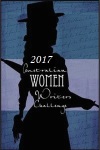Felicity Castagna, No More Boats (Giramondo 2017)
 It’s 2001. The Tampa is all over Australian television with its burden of asylum seekers saved from drowning, alternating with John Howard’s uttering his infamous cry, ‘We will decide who comes to this country and the circumstances in which they come.’ And one working-class migrant family in Parramatta is coming apart at the seams.
It’s 2001. The Tampa is all over Australian television with its burden of asylum seekers saved from drowning, alternating with John Howard’s uttering his infamous cry, ‘We will decide who comes to this country and the circumstances in which they come.’ And one working-class migrant family in Parramatta is coming apart at the seams.
Antonio Martone came to Australia after World War Two and married Rose, an Anglo woman he met in the migrant hostel. In 2001 he is injured in a terrible accident on a building site trying to save his best friend’s dignity, and after decades of skilled labour is forced to retire. Francis, their son who still lives at home, works by day on the same projects as his father, though without the pride of a first-generation migrant, and he knocks around by night with a small group of partying friends. Their daughter, Clare, has lit out for the inner city where she works in a bookshop and aspires to be a writer (though as far as the family is concerned she is still a high-school teacher): ‘She was born to these city streets, even though she wasn’t really born in the city; she was made to be born here and when she walked these streets she told herself that she was.’ And Rose tries to keep it all together as Antonio becomes increasingly bitter and erratic.
The novel’s title may lead you to expect it to be about Australian immigration policy. Well, maybe it is, but the domestic story, the story of Antonio’s deterioration and other people’s responses to it, is at the book’s heart. Here’s Antonio just after discovering that Clare has been lying about keeping her teaching job:
He felt the weight of something pressing against his chest. A memory interrupted his exit from the school: Clare with her pigtails in plaits, standing with a piece of chalk at the blackboard he’d given her for her twelfth birthday, writing down words for a five-year-old Francis to copy onto a sheet of paper.
He wondered who his children were now. This was the hardest thing about being a parent, the thing that no one tells you about. The fact that you grieve for your children from the moment they are born. Not so much because you’ve lost them but because they are always changing and you can’t get back all those different versions of what they once were.
Antonio grapples with many kinds of loss – of the pre-migration life, of youth, of employment, of physical wellbeing, of dignity, and of friends. Flailing around for a way to deal with his wretchedness, he seizes on the issue of immigration: he’s offended by the poor workmanship of the underpaid recent migrants on the worksite, and becomes obsessed with the objects of John Howard’s televised indignation. At a crucial moment he smokes some marijuana from Francis’s secret supply, and creates a spectacular piece anti-boat-people graffiti. The family is suddenly in the headlines, the dramas being played out on the television are much closer to home, and there’s a strong undercurrent suggesting that Antonio’s deterioration may be a metaphor for a similar process in Australian ciivil society.
There are other characters: a Vietnamese former student who surprises Clare by becoming a love interest; a Lesbian next door neighbour who provides respite for Rose; Francis’s mates Jesús and Charbel; a right-wing opportunist who exploits Antonio’s confusion; the ghost of Antonio’s friend who was killed in the accident – and more. It’s a story told at a pace that keeps the pages turning, with compassion for all players (John W Howard – ‘the dull man’ – and right-wing opportunists excepted), and a strong sense of place: the Martone home with its concreted front yard and gap in the fence to the house next door, the streets of Western Sydney and the inner city, the banks of the Parramatta River, this is a book in which you always know where you are.
 No More Boats is the fourteenth book I’ve read for the 2017 Australian Women Writers Challenge. I gratefully acknowledge that I received a complimentary copy from Giramondo Books.
No More Boats is the fourteenth book I’ve read for the 2017 Australian Women Writers Challenge. I gratefully acknowledge that I received a complimentary copy from Giramondo Books.


I was impressed by this book, I like the way it puts a human face on refugee lives.
LikeLiked by 1 person
Yes, Lisa, the faces are all believably human – right down to the disillusioned skinhead
LikeLiked by 1 person
Excellent review! I have just purchased the title. Thanks Jonathan.
Jim KABLE
LikeLike
Enjoy, Jim!
LikeLike